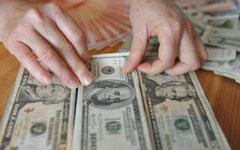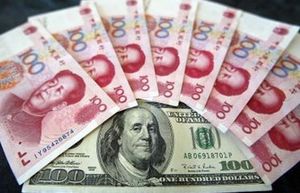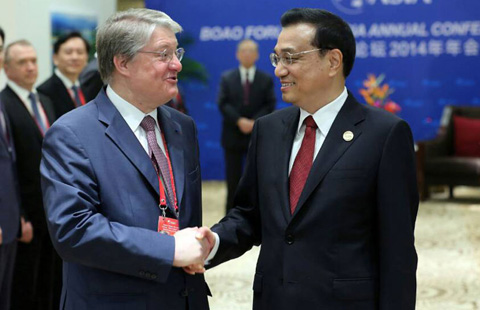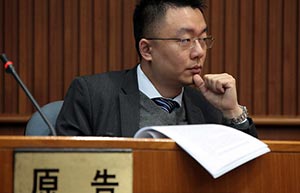Australia to offer further renminbi products
By Gao Changxin in Shanghai (China Daily) Updated: 2014-04-12 07:20
The head of the Australian Securities Exchange said on Friday it wants to introduce yuan-denominated capital markets products, including bonds. The exchange launched Australia's first yuan payment platform in February.
ASX CEO Elmer Kupper made the comments in Shanghai. The Bank of China's Sydney branch issued 2 billion yuan ($325 million) worth of yuan bonds on Wednesday, the first yuan bond in Australia.
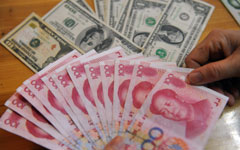 |
Kupper takes a long-term perspective on the yuan's development in Australia.
"Over time these things (the yuan market) will develop, so you have to take a very long-term view here," Kupper said in an interview in Shanghai. "Small steps to a big future is the way to look at it."
The payment platform, jointly launched with Bank of China, will allow Australian companies to take or make payments with Chinese investment and trading partners through ASX's Austraclear market infrastructure.
The service will be operational in July and Kupper said it has been very well received by Australian companies.
In February, the yuan's use for payments in Australia increased 248 percent from the year before, placing Australia sixth for yuan payments by value when the Chinese mainland and Hong Kong are excluded. That's according to global transaction service organization SWIFT.
A total of 14.2 percent of payments between Australia and China were denominated in yuan in February, up from 7.7 percent in February 2013 and 1.9 percent in February 2012. Institutions transacted 98 percent of that payment value, while payments sent by banks on behalf of their customers made up the other 2 percent, according to SWIFT.
Part of the yuan's quick rise in global trade and investment over the past few years can be attributed to the currency's constant appreciation against the US dollar and the high interest rate in China. That offers companies extra incentive to use the yuan; to provide investment returns rather than simply avoiding foreign exchange risks.
But many fear enthusiasm to use the yuan following its recent exchange-rate fluctuation that went against a decade-long expectation of one-way appreciation.
Kupper said that the yuan's rise won't decelerate because there are companies in Australia, especially miners, that will use it as one of the currencies to hold and use to minimize currency conversion costs.
"We don't look at the value of the currency, the value will go up and down, we look at the use of the currency," Kupper said. "It's only going to go one way, which is it's going to become a bigger currency."
|
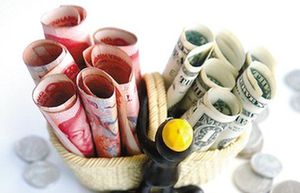 Yuan eases on widened trading band |
|
- Purifiers provide breath of fresh air
- Stimulus ruled out as growth remains within target range
- More foreign brands finding opportunities in Guangzhou
- High-end office demand up in Guangzhou
- Regulators ease overseas investment
- Shanghai promises affordable Disney tickets
- Most urban children use digital media, survey shows
- China stocks close mixed on Friday
